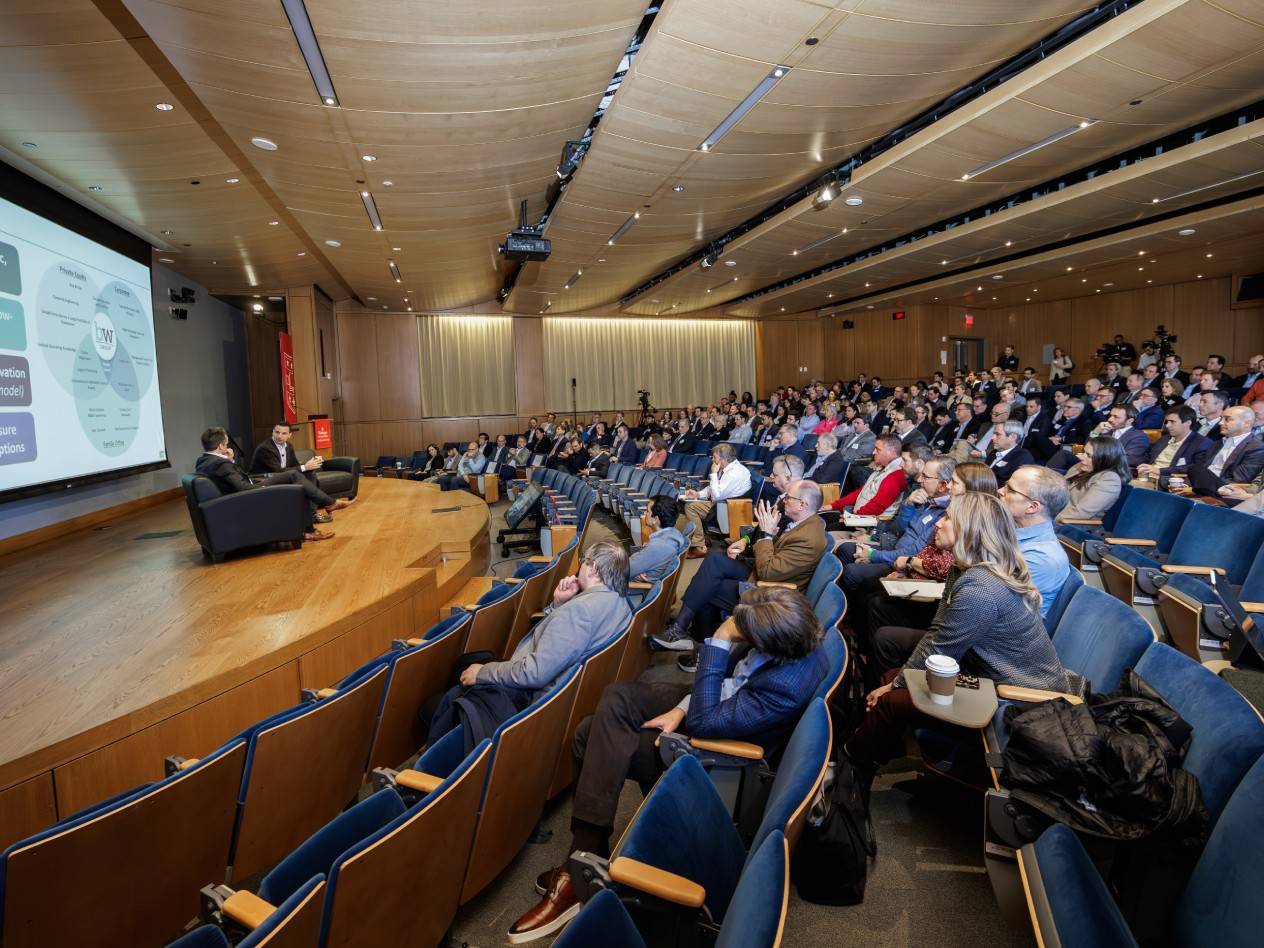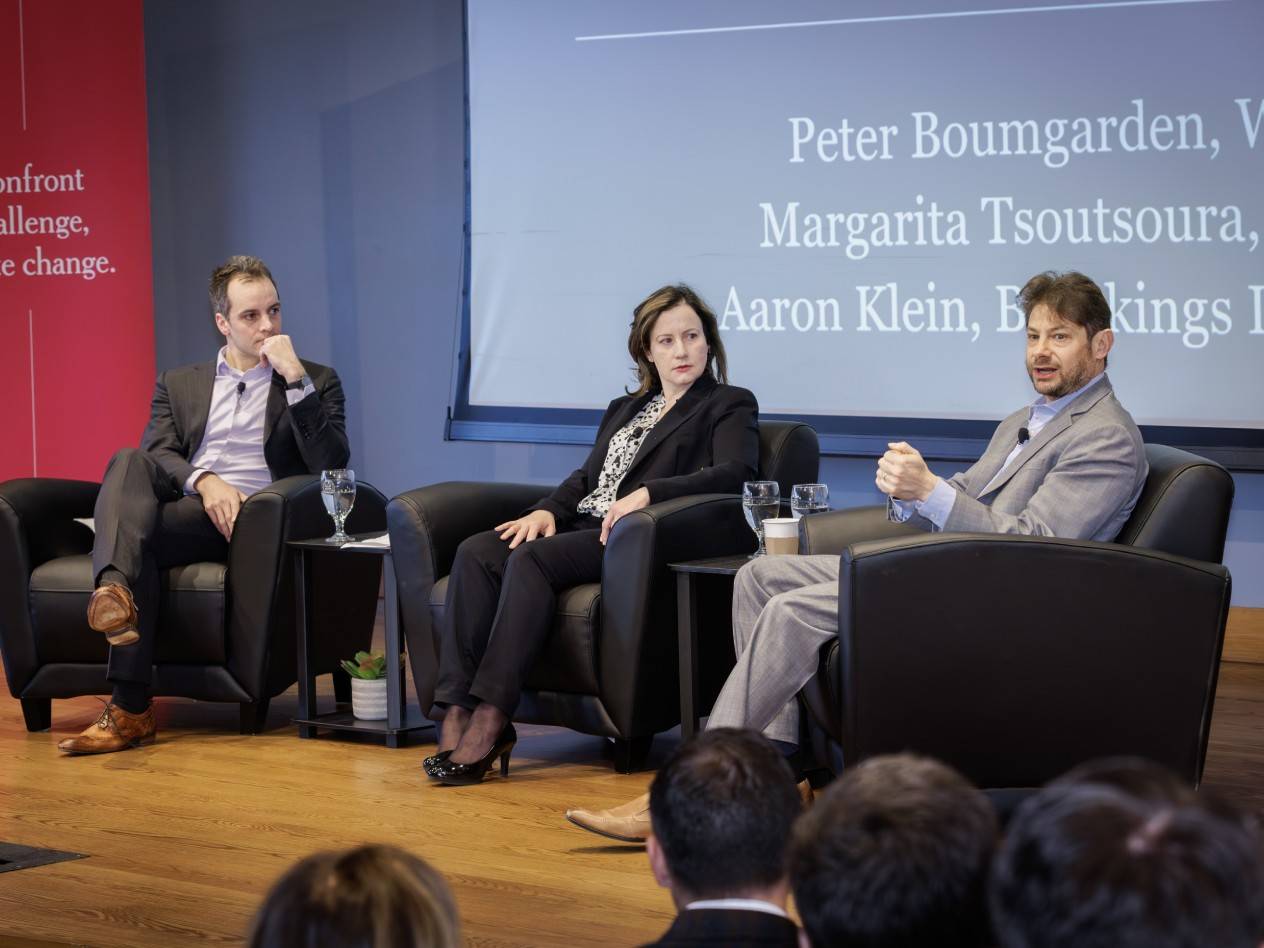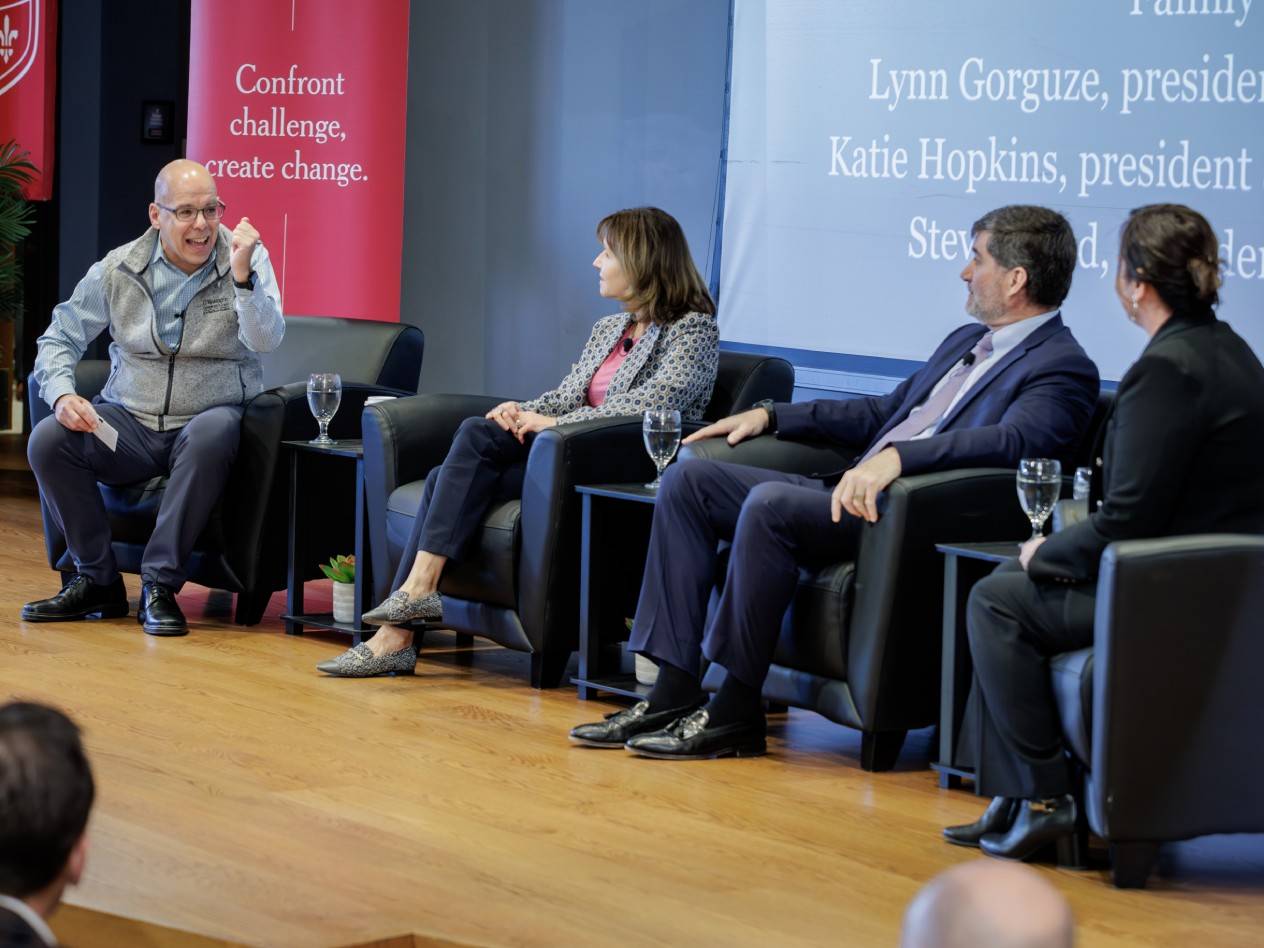Family business leadership transition: Balancing ownership, control and responsible returns
- March 25, 2024
- By Kurt Greenbaum
- 3 minute read

The 8th Annual Family Enterprise Symposium, hosted by the Koch Center for Family Enterprise, explored strategies of transition for private, family-owned businesses amid a tidal wave of ownership transitions underway as Baby Boom founders age toward retirement.
The event highlighted diverse perspectives from entrepreneurs, academics, and industry experts, delving into the challenges and opportunities surrounding business transitions.
The topic also dovetails with a current project between WashU Olin and the Brookings Institution. Dubbed “Main Street’s Tidal Wave of Transition,” the Olin Brookings Commission project will examine the models of ownership transition in use today (including selling to private equity firms), the current period of ownership transitions, how these transitions affect the economy and what policy issues may arise.
Peter Boumgarden, Olin's Koch Family Professor of Practice in Family Enterprise, chairs the commission and organized the symposium, staged February 28, 2024.
“Transition is inevitable,” Boumgarden said, kicking off the symposium. “Transition is something in front of every single person in various different ways, and specifically for business owners.”
Preparing the next generation
Strong family enterprises plan carefully for how they’ll transition from one leadership generation to the next, according to research cited by Margarita Tsoutsoura, Olin associate professor in finance. It’s not unusual to have established structures, formal methods or internal competitions around who will be the successor.
“They’re making sure the next generation has what it needs before transitioning, and they have very specific guidelines on what type of education they have to have, what type of experience outside the business,” she said.
Humanistic leadership
Steve Gund, CEO of The Gund Company, highlighted the advantages of humanistic leadership in family businesses.
We really got turned onto humanistic leadership, and I cannot emphasize enough the competitive advantage that culture can be.
Steve Gund
“We really learned from the Chapman family as we needed to be very intentional and articulate about teaching leadership,” said Gund.
Private equity concerns
One key theme that emerged was the concern over private equity's role in family businesses. Speakers raised concerns about private equity firms' short investment horizons, reliance on debt and fees, and limited liability for portfolio company actions.
“Private equity firms often have a very short investment horizon,” said Brendan Ballou, author of “Plunder: Private Equity's Plan to Pillage America.” “That perspective changes how you're going to treat a business.”
For example, if he wanted to maximize his home’s value over 20 years, he’d remodel the kitchen, but if he wanted to maximize the value in two weeks—he joked—he’d burn it down and try to collect the insurance money.
Ballou also pointed out the “limitations or insulation from liability” that private equity firms often enjoy. “We have a situation in a lot of private equity investments where private equity firms have operational control, but lack responsibility when things go wrong at those businesses,” he said.
Strategies for successful transitions
The symposium also explored a range of strategies for successful transitions within family businesses. Kyle Chapman, president of Barry-Wehmiller, shared how his family-owned business had achieved a successful transition by:
- Creating a vision and mission that emphasize employee well-being and customer satisfaction
- Maintaining a diversified business model
- Investing in culture and leadership development
“People and performance can exist in harmony, not one at the sacrifice of the other,” said Chapman. “By attracting, retaining and developing the best leaders in the world, we can achieve the best performance.”
The Family Enterprise Symposium provided valuable insights and strategies for family business owners navigating transitions, emphasizing the importance of long-term thinking, strategic planning and a commitment to creating a positive work environment.
By balancing family legacy with business success, investing in culture and leadership, and addressing concerns over private equity, family businesses can position themselves for a sustainable and thriving future.
Scenes from the 2024 Family Enterprise Symposium
WashU Olin attracted a great crowd in person and online for the symposium on February 28, 2024.


Media inquiries
For assistance with media inquiries and to find faculty experts, please contact Washington University Marketing & Communications.
Monday–Friday, 8:30 to 5 p.m.
Sara Savat
Senior News Director, Business and Social Sciences
